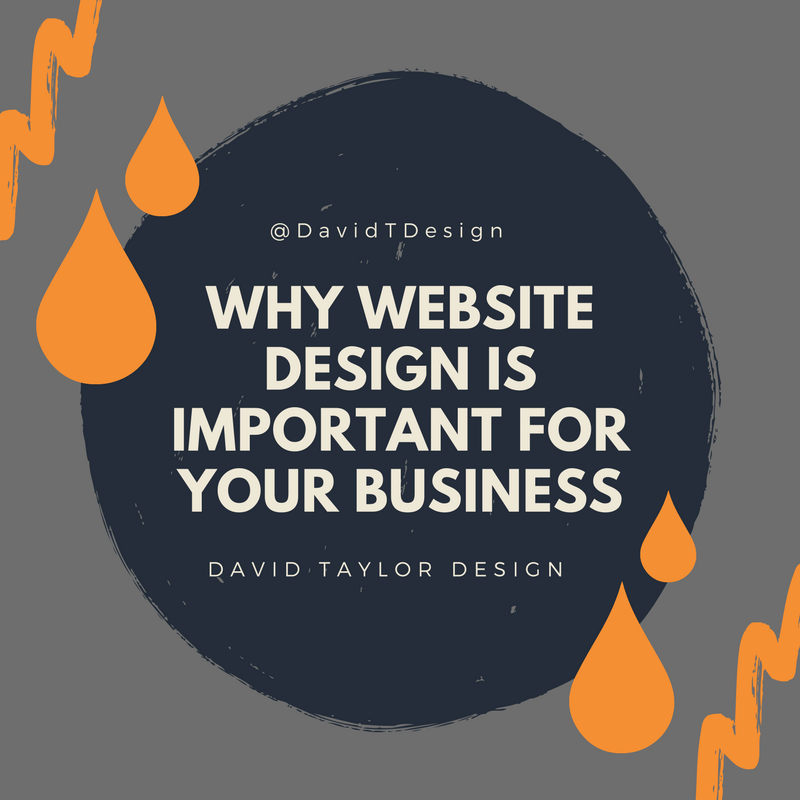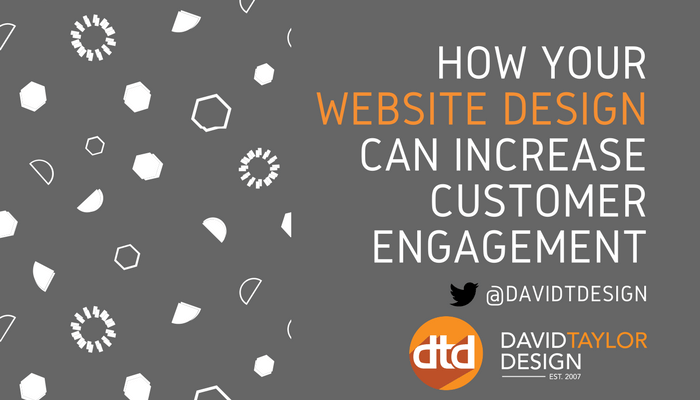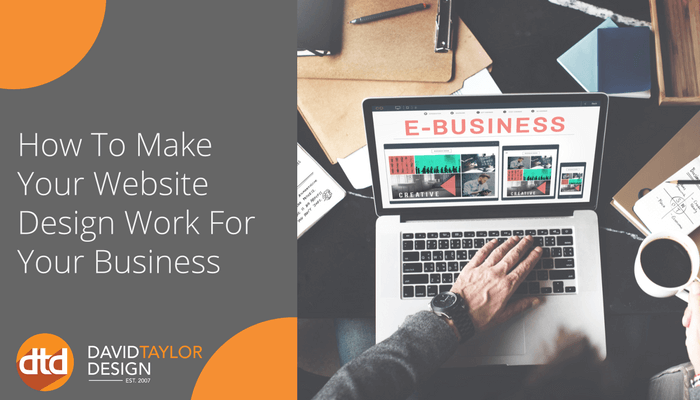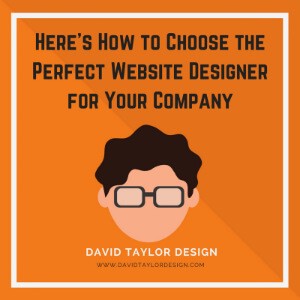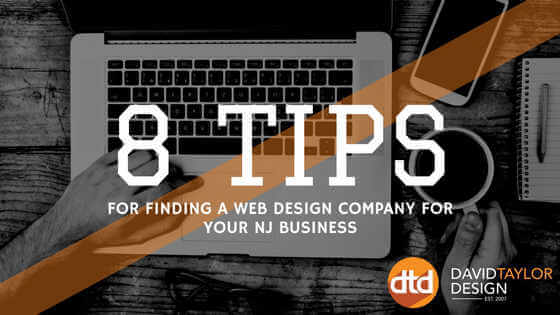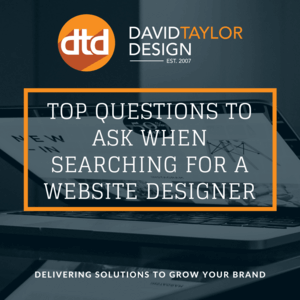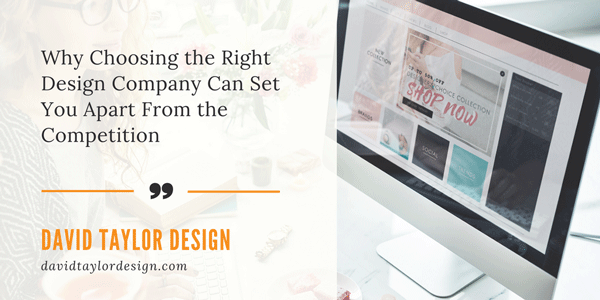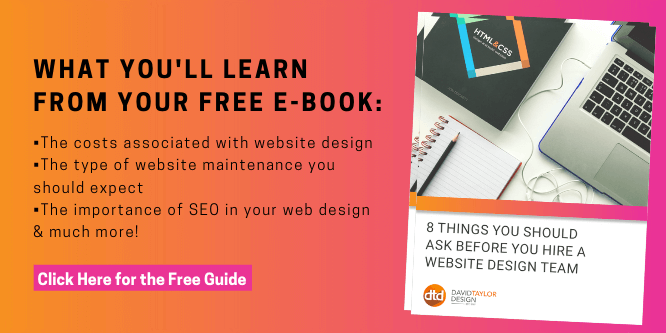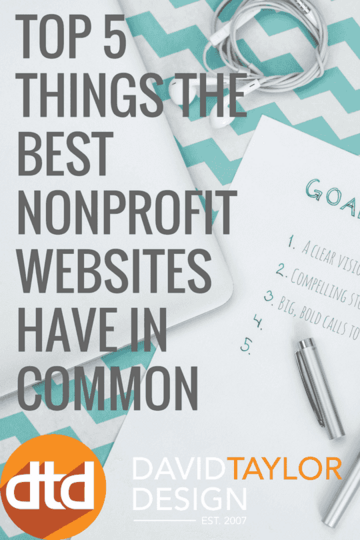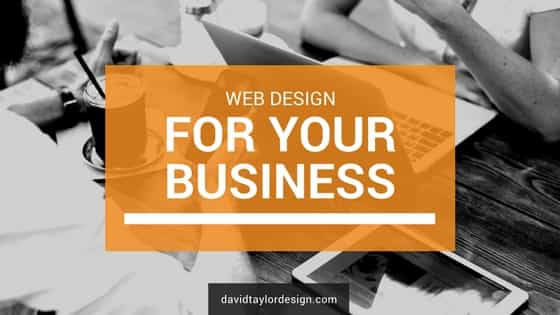
The correlation between your website’s design, the designer you choose, and your business growth potential is a big one. We’d even go as far to say that your business’s bottom line depends on your web design and how your website visitors interact with your site overall. Many times, the design of a company’s website or the need for a professional designer may be overlooked when they don’t understand its importance, but we want to make sure that doesn’t happen to you.
The design of your website is significant, and learning how to make your design work for your business and not against it is crucial to your company’s success. Increasing customer engagement and bringing in more business eventually are just a couple of the reasons why your website design is so critical regarding your future growth.
The Undeniable Importance of Web Design for Your Business
In the digital age, your website serves as the front door to your business. It’s not just an add-on or a luxury anymore; it’s a necessity. But having a website isn’t enough. The design of your website can make or break your online success, affecting everything from trust and credibility to search engine rankings.
If you’re still wondering why web design for your business is a non-negotiable, let’s dive into some compelling reasons.
First Impressions Matter: Boost Traffic and Customer Engagement
We’ve all been there—landing on a website that’s cluttered, confusing, or just plain outdated. The result? We leave and seek better options. On the flip side, a well-designed, user-friendly website keeps visitors engaged and converts them into customers. It’s simple: good web design attracts more traffic and keeps users coming back for more.
Key Takeaway: A customer-centric website that’s easy to navigate can turn casual visitors into loyal customers, and even brand advocates.
Your Website Speaks Volumes About Your Service Quality
Think of your website as an extension of your customer service. A clean, modern, and functional website gives visitors a taste of how you run your business. A poorly designed website, on the other hand, could deter customers before they even have a chance to see what you’re all about.
Key Takeaway: Your website design directly reflects the quality of your service. Make a strong first impression with a design that aligns with your brand values and customer expectations.
A 24/7 Marketing Powerhouse
While you’re off the clock, your website continues to work. It’s your always-on marketing tool that can generate leads, sales, and endless opportunities—even while you sleep. By incorporating features like a FAQ section, an online store, or a contact form, you’re providing value around the clock.
Key Takeaway: A well-designed website acts as your 24/7 sales rep, customer service agent, and marketing specialist, all rolled into one.
Credibility: The Silent Business Booster
In a world where consumers are bombarded with options, credibility is a priceless asset. A professionally designed website not only gains trust but also influences the perceived credibility of your business. According to research, nearly half of all consumers view website design as the number one factor in determining the credibility of a business.
Key Takeaway: Investing in a high-quality website design can significantly boost your business’s credibility, making you the go-to choice in a sea of competitors.
How Your Website Design Can Skyrocket Customer Engagement
A website is more than just a digital storefront. It’s a marketing tool, a customer service rep, and most importantly, a medium for customer engagement. The design of your website plays a pivotal role in how customers interact with your brand.
Let’s explore how does web design for your business can significantly increase customer engagement.
The Power of First Impressions
The clock starts ticking the moment a visitor lands on your website. You have about eight seconds to grab their attention. Just like a blind date, first impressions are crucial. A well-designed website captivates your audience and encourages them to explore further.
Make It Count: Your website is often the first touchpoint for potential customers. A sleek, user-friendly design can turn casual visitors into engaged customers and even brand advocates.
Entice with Incentives
Who doesn’t love freebies? Offering incentives like free trials or exclusive content can significantly boost user engagement. It’s a win-win: customers get something valuable, and you get their attention and data for future marketing campaigns.
The Takeaway: Incentives are not just about giving things away; they’re about building a relationship with your customers. The more engaged they are, the more likely they are to convert and stick around.
The Magic of Live Chats
Live chats aren’t just customer service tools; they’re engagement powerhouses. They offer real-time solutions to customer queries, making the user experience smooth and enjoyable. Plus, the data collected from these interactions can be goldmines for improving your services and tailoring your marketing strategies.
Why It Works: Live chats provide instant customer service, making users feel valued. This immediate interaction can lead to higher satisfaction rates and, ultimately, more sales.
Embrace Clean Lines and Seamless Navigation
A cluttered website is an engagement killer. Users should be able to find what they’re looking for without a hassle. Clean lines, intuitive navigation, and a well-organized layout can make your website a pleasure to explore.
Keep It Simple: A clean and organized website enhances user experience and encourages prolonged engagement, increasing the chances of conversion.
Mobile Responsiveness: A Non-Negotiable
With the increasing dependency on smartphones, your website must look and function well on all devices. A mobile-responsive design ensures that you don’t lose potential customers who prefer browsing and shopping on their phones.
Adapt and Thrive: A mobile-responsive website is no longer optional; it’s a necessity. Ensure your web design adapts to various screen sizes without compromising on user experience.
Web design for your business is not just about aesthetics; it’s a strategic asset for customer engagement. From making powerful first impressions to offering real-time customer service through live chats, every design element should aim to engage and convert.
How To Make Your Website Design Work For Your Business
Your website serves as the front door to your business. It’s not just about having a site; it’s about having a site that works for you. Let’s delve into how you can make web design for your business a powerful tool for growth.
Crafting a Cohesive Concept
A visually stunning website is great, but it’s the substance behind the style that counts. Your website should be a harmonious blend of aesthetics and functionality, designed to answer key customer questions: Why should they choose you? What sets you apart? What value do you bring?
The Takeaway: A cohesive concept goes beyond just a pretty interface; it encapsulates your brand’s vision and values, serving as a virtual handshake to potential customers.
Marketing Synergy: SEO and Social Media
Your website is a cornerstone of your digital marketing strategy. It should align with your business goals and mission, and here’s how:
- Search Engine Optimization (SEO): In the digital world, visibility is currency. SEO isn’t just a buzzword; it’s a necessity. By optimizing your site for search engines, you’re essentially setting up a beacon that guides potential customers right to your doorstep.
- Social Media Integration: Social media isn’t just for selfies and memes; it’s a potent tool for business growth. Integrating social media into your website isn’t just about slapping on some icons; it’s about creating a seamless transition between different platforms, enhancing user experience and brand consistency.
Pro Tip: Both SEO and social media should be integral parts of your web design for your business, working in tandem to amplify your reach and engagement.
Versatility: The Key to Longevity
Versatility in web design means your website can adapt and evolve. Whether you’re a niche boutique or a multiservice enterprise, your website should be scalable and flexible, ready to pivot when needed.
Stay Ahead: Keep an eye on design trends and technological advancements. Your website should be a living, breathing entity that evolves with your business and the digital landscape.
Customer Engagement: The Heart of Web Design
The ultimate goal of any business website is customer engagement. A well-designed website doesn’t just attract visitors; it keeps them there. Here’s how:
- Ease of Navigation: Your website should be as intuitive as a well-organized store. Clear menus, straightforward layouts, and accessible information are the cornerstones of user-friendly design.
- First Impressions Matter: You have mere seconds to make a lasting impression. A cluttered, confusing website will turn visitors away. Make those first moments count with a clean, inviting design.
The Bottom Line: Your website should be designed with the user in mind, from the layout to the content. The easier and more enjoyable you make the user experience, the longer visitors will stay, and the more likely they are to convert into customers.
Choosing the Right Web Designer
Your website is a significant investment, and choosing the right web designer can make or break its success. Look for designers who have the technical skills and understand your business goals and customer needs.
Designer Checklist:
- Portfolio: Do their past projects align with your vision?
- Testimonials: What do previous clients say about their experience?
- Compatibility: Do they understand your industry and target audience?
Web design for your business is more than just creating a digital presence; it’s about building a complete, customer-centric experience. From the initial concept to ongoing marketing efforts, every element should be in sync, driving towards the ultimate goal of customer engagement and business growth.
Here’s How to Choose the Perfect Website Designer for Your Company
Navigating the digital landscape can be daunting, especially when it comes to selecting the right website designer for your business. Your website is more than just a digital storefront; it’s the first impression most clients will have of your brand. So, how do you ensure you’re making the right choice?
Here’s a comprehensive guide to help you zero in on the perfect fit.
Preparing Your Vision: Know What You Want
Before you even start the conversation with potential web designers, it’s crucial to clearly understand what you’re looking for.
Key Considerations:
- Functionality: What features and capabilities do you want your website to have? Are you looking for an e-commerce platform, a blog, or perhaps a portfolio showcase?
- Content: Will you provide the copy and images, or do you need a full-service designer who can handle that as well?
- Design Preferences: Do you have specific design elements in mind, or are you open to the designer’s creative input?
- Inspiration: If you’ve seen websites that resonate with your vision, make a list to share with potential designers.
By having these details sorted out, you can have a more productive dialogue with designers and better evaluate if they can meet your needs.
Assess Their Portfolio: Do You Connect with Their Style?
One of the best ways to gauge a designer’s capabilities and aesthetic is by looking at their previous work.
Quick Tips:
- Design Aesthetics: Does their style align with your brand’s image?
- Functionality: Do the websites they’ve designed in the past have the features you’re looking for?
- Recommendations: Don’t hesitate to ask for referrals or read testimonials to get a sense of their reputation and reliability.
Post-Launch Involvement: Be Realistic About Your Role
Your website will need ongoing maintenance, and it’s essential to know how involved you want to be post-launch.
Questions to Ask Yourself:
- Do you have the skills and time to update content, or would you prefer a designer who offers ongoing support?
- What kind of changes do you anticipate needing? Frequent stock updates, regular blog posts, or occasional design tweaks?
Understanding your limitations and needs will help you find a designer who can offer the right level of post-launch support.
Future Support: Availability Matters
Even the best-designed websites can encounter issues. Knowing how accessible a designer will be for future troubleshooting is crucial.
Points to Consider:
- Support Plans: Does the designer offer ongoing support and maintenance packages?
- Troubleshooting: Ask about their experience in resolving issues for past clients.
- Coding Language: Ensure the website is built in a commonly used coding language, making it easier for another developer to step in if needed.
Choosing the right website designer is a critical decision in the web design for your business journey. By preparing your vision, assessing portfolios, understanding your post-launch role, and ensuring future support, you can make an informed choice that aligns with your business goals.
8 Tips For Finding A Web Design Company For Your NJ Business
In today’s digital age, having a robust online presence is not just an option but a necessity for businesses in New Jersey. With users often bouncing off web pages within the first 10 to 20 seconds, your website needs to capture attention and offer value to keep them engaged. If your current website is a labyrinth that users can’t navigate, you’re essentially leaving money on the table.
Your website is an extension of your brand, and it should be as dynamic and engaging as any top salesperson on your team. So, how do you ensure that your website is up to the task? The answer lies in choosing the right web design company.
Here are eight tips to guide you in making an informed decision.
Define Your Objectives: Know Your Goals
Before you even start looking for a web design company, you need to have a crystal-clear understanding of what you want to achieve with your website.
Key Objectives to Consider:
- For E-commerce: If you’re in the e-commerce sector, your primary goals might include ROI, customer retention, and conversion rates.
- For Branding: If you’re looking to build brand awareness, focus on visibility and delivering valuable content.
- Budget: Have a budget in mind to discuss in your initial meetings, so both parties are clear on the financial scope of the project.
Do Your Homework: Ask Questions
Start by identifying websites that resonate with you and find out who designed them. This can often be found at the bottom of the webpage or through a direct inquiry.
Questions to Ask Potential Designers:
- Can you provide testimonials or references from past clients?
- Do you have experience in my industry?
Clarity is Key: Communicate Clearly
Clear communication is crucial when working with a design agency. If you’re confused about any aspect of their service, ask for clarification.
Effective Communication Tips:
- Always ask questions if you’re unclear about any aspect of the project.
- A reputable company will appreciate your queries and respond promptly.
Location Matters: Discuss Who Will Be Doing The Work
Find out where the design team is located. Time zones and accessibility can be crucial factors, especially if quick fixes are needed.
Location Considerations:
- Is the team local, or do they operate in a different time zone?
- If they use remote designers, are those designers easily accessible?
Content is King: Know the Value of Content
A competent web design company understands the importance of content in the overall strategy.
Content Strategy:
- The agency should understand your target audience to deliver optimized content.
- Avoid agencies that use generic, copy-paste strategies.
Be Tech-Savvy: Get Familiar with the Publishing Platform
Understanding the Content Management System (CMS) used by the agency can give you an edge.
CMS Tips:
- Most agencies use WordPress; familiarize yourself with it to make quick edits post-launch.
Strategy First: Understand the Strategy
A transparent and well-defined strategy is a hallmark of a reliable web design company.
Strategy Insights:
- Ask for a step-by-step plan to understand budget allocation and timelines.
- This will help set realistic expectations for the project’s progress.
Long-Term Vision: Maintain a Relationship
Your relationship with the web design company shouldn’t end post-launch; it should be an ongoing partnership.
Relationship Building:
- A good agency will offer post-launch support to help your website evolve.
- Inquire about their long-term relationship plans with other clients.
By following these tips, you’ll be well on your way to finding a web design company in New Jersey that aligns perfectly with your business goals and needs. Remember, the web design for your business should be a reflection of your brand’s values and objectives. So, take your time, do your research, and choose wisely.
Top Questions To Ask When Searching For A Website Designer
So, you’re ready to elevate your online presence with a professionally designed website—excellent choice! Your website is often the first impression potential customers have of your business, making it a critical component of your brand. But let’s face it, finding the right web designer for your business can be a daunting task. It’s not just about aesthetics; it’s about functionality, user experience, and aligning with your business goals.
To help you navigate this important decision, we’ve compiled a list of essential questions to ask potential designers. These questions will help you gauge their expertise and determine if they’re the right fit for your project.
The User Experience: How Do You Approach Usability?
Usability is the cornerstone of an effective website. A great designer will prioritize the user experience, ensuring that your site is intuitive and user-friendly.
What to Listen For:
- A focus on user-centered design.
- Experience with user research and usability testing.
- Enthusiasm about this aspect of web design.
Portfolio Check: Can You Show Me Examples of Similar Projects?
Examining a designer’s past work can give you insights into their style, complexity, and other key factors.
What to Listen For:
- Projects that align with your business goals or industry.
- Explanation of design choices and their outcomes.
- Willingness to take on a project like yours, even if they haven’t done something exactly similar before.
Team Dynamics: Can I Meet Your Team?
Understanding who will be working on your project can offer insights into the design process and what skill sets are available.
What to Listen For:
- Whether the team is in-house or outsourced.
- How they manage projects and ensure timely delivery.
- Credibility checks like references or Better Business Bureau ratings.
Future-Proofing: Can I Introduce Changes to the Website Later?
Your business will evolve, and your website should be capable of evolving with it.
What to Listen For:
- Flexibility in updating the website.
- Whether they offer a user-friendly content management system.
- Costs associated with different types of updates.
Metrics Matter: How Do You Measure Results?
Understanding the key performance indicators (KPIs) for your website is crucial for long-term success.
What to Listen For:
- Use of analytical tools to track metrics like pageviews, bounce rates, and SEO rankings.
- How they use these insights to make data-driven decisions.
Comprehensive Services: What Are Your Core Services?
A web design agency that offers a full suite of services can be a valuable asset.
What to Listen For:
- Capabilities in design, development, and marketing.
- Expertise in coding, SEO, and industry best practices.
Client Responsibilities: What Do You Expect From Me?
Knowing your role in the project can help set expectations and ensure a smoother process.
What to Listen For:
- Specific deliverables you’re responsible for, such as content or images.
- Any other expectations they have from you beyond the financial commitment.
By asking these questions, you’re not just vetting potential designers; you’re also setting the stage for a successful partnership. Remember, the right web design for your business is a blend of form and function, tailored to meet your specific needs. So, take your time, ask the right questions, and choose wisely.
How To Pick the Right Website Design Company For Your NJ Business
Your website is often the first point of contact between your business and potential customers. A staggering 81% of consumers conduct online research before making a purchase in-store, according to GE Capital Retail Bank’s second annual Major Purchase Shopper Study. This makes your website an indispensable tool for attracting and retaining customers.
But what if you’re not a tech-savvy business owner? How do you navigate the complex world of web design for your business? Here are some key considerations to guide you in choosing the right website design company for your New Jersey-based business.
Price Check: Does Their Quote Match Other Design Companies in the NJ Area?
The Importance of Budgeting
Cost is often the first thing that comes to mind when considering a new project. While it’s tempting to go for the cheapest option, remember that you often get what you pay for.
How to Approach Pricing
Gather quotes from multiple design companies to get a sense of the market rate. If one company’s quote seems unusually high or low, ask them to break down the costs for you. This will give you a clearer understanding of what you’re paying for and whether it aligns with your budget and expectations.
Local Insights: Is the Company Located in NJ, or Do They Understand the Area?
Why Local Matters
A local company or one that understands the NJ area will have insights into local consumer behavior, preferences, and trends. This can be invaluable when designing a website that resonates with your target audience.
The Local Experience
For instance, knowing that locals love hanging out at the Iron Bar in Morristown or dining at Fascino in Montclair can inform the design and content of your website, making it more relatable and engaging for your audience.
Competitive Edge: Do They Understand the NJ Competition for Your Industry or Business?
Know Your Competition
Understanding your competition is crucial for any business, and your website is no exception. A good web design company will conduct a competitive analysis to identify opportunities and threats in the digital landscape.
What to Look For
Pay attention to what your competitors are doing right and where they’re falling short. For example, many websites lack effective calls to action, which are crucial for guiding user behavior. A savvy web design company can help you capitalize on these gaps to give you a competitive edge.
Choosing the right web design company is a critical decision that can significantly impact your business. By considering these factors, you’ll be better equipped to make an informed choice that aligns with your business goals and budget
Why Choosing the Right Design Company Can Set You Apart From the Competition
To succeed in a very competitive business market, every company needs to have the best brand experience for their customers. Without this, there is no new business and no ways to grow revenue and expand. With the expanse of social media and the mobile web, customers can shop anywhere from different platforms. Taking advantage of this is a great way for businesses to market themselves and gain new consumer support. Hiring a web design company can help give your business a unique leg up on the competition.
Finding the right company for your business may require some trial and error. Every company you encounter is going to explain how they are the best. But are they really the best for you and your company? Choosing the right company will benefit you because their goal will be to provide you with the best possible web design that showcases your business’s mission.
Here are four questions to keep in mind:
Can they help you achieve your business goals?
The whole point of hiring a professional to complete your web design is to support your larger business objectives. In creating your website, a web designer/company is an extension of your business. Communicating these goals to your designer is key to developing a strong and unique website, which will aid your brand in its growth. You almost have to be diligent and extremely forthcoming in exactly what you want to see.
Designers are not mind-readers and therefore cannot automatically know the crucial things you would like implemented in the design. Let them know what you hope to see and what your clear objectives are regarding content and formatting. A good designer should take all the criteria you list and meld it into a strong result.
What are your budget requirements?
The cost of a web designer could make or break your ability to hire one. We all know most good things don’t come cheap, but that doesn’t mean you have to pay through the nose either. If you’re trying to figure out how to justify the cost, do your research. Ask yourself what you spent in the last year on marketing or advertising? How many of those expenditures brought in revenue and sales growth?
Before hiring a web design company, find out if they have clear evidence, in terms of figures, and tangible results. It’s more about the value of what an agency can provide versus what it will cost. Don’t let the initial cost scare you off. Spending the money for a professional could yield exceptional results, which means you won’t need to spend extra money on other marketing ventures.
Do they have experience in more than one industry?
An agency that caters to a wide variety of industries is a better option over an agency that specifies in only one industry. That may seem like a strange statement, but there are some things to consider that support these thoughts.
A company that focuses on one industry may not give you a unique design. If the company is constantly creating the same content, how many times can they possibly come up with something unique? An agency that works in numerous industries is more likely to deliver a website that is distinguishable from others. You want your website to be a cut above the competition, not identical.
Are they on top of modern design trends?
No matter the age of your company, you want your website to look like it fits in this modern age. A web design company should keep up with new and modern techniques. Customers are much more likely to use a business that seems modern and up to date. This doesn’t mean that your website needs to be covered in everything new and modern. It should be a nice balance between what is modern and what is proven.
Elevate Your Business with a Tailored Web Design
In today’s competitive landscape, a one-size-fits-all approach to web design simply won’t cut it. Your website should be as unique as your business, serving as a digital extension of your brand. It’s not just about aesthetics; it’s about creating an online space that resonates with your target audience and aligns with your business goals.
So, don’t settle for a cookie-cutter solution. Take the time to explore different agencies, see what they can offer, and ensure it aligns with your vision for your business. Remember, a well-designed website isn’t an expense; it’s an investment in your business’s future.
Ready to Take the Next Step?
If you’re looking to elevate your online presence with a website that’s custom-tailored to your business needs, David Taylor Digital is here to help. We specialize in creating user-centric, SEO-friendly websites that look great and drive results.
Contact us today to learn more about how our web design services can transform your business. Let’s work together to create a website that sets you apart from the competition and propels your business to new heights.
